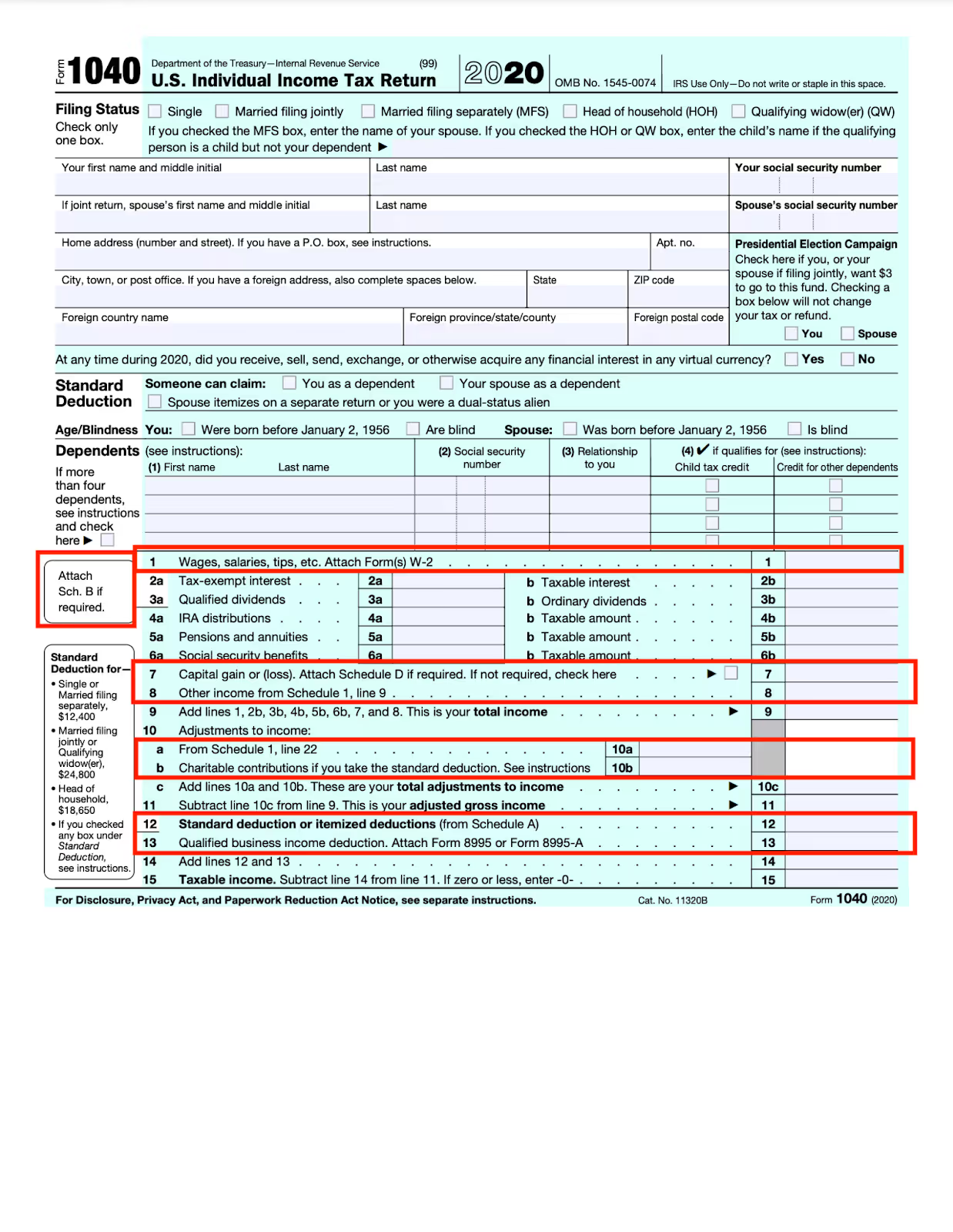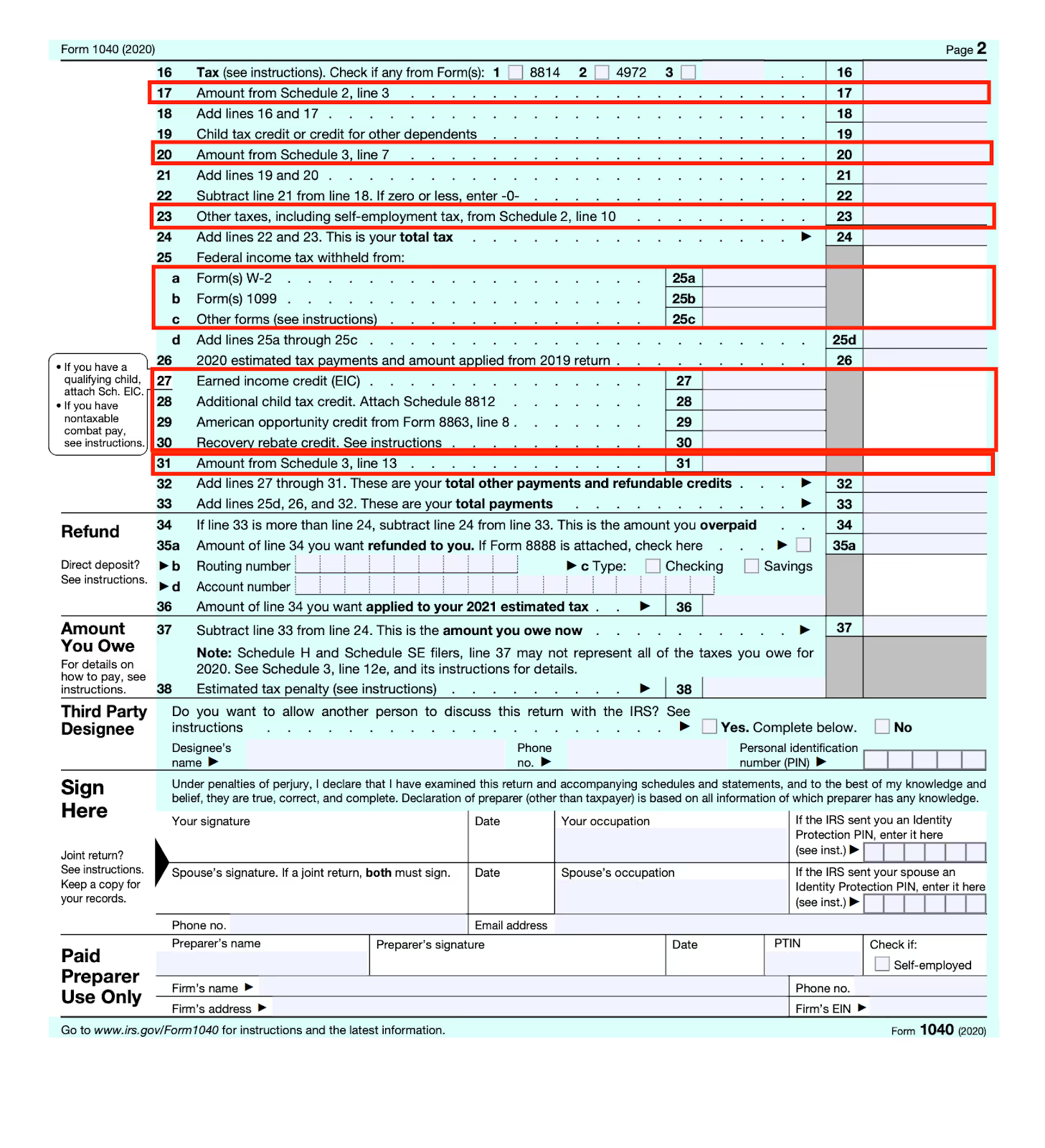How to Avoid USCIS Requests for Evidence
Last Updated: February 11, 2025.
When USCIS needs more information for a case they issue what is called a “Request for Evidence” or an RFE, as they are commonly called.
While these requests are issued on a routine basis and are just USCIS’s way of collecting more information, we understand that they can add stress to your process. Let’s look at the most common RFEs that USCIS issues for Family-Based green card applications and how to avoid receiving one.
SimpleCitizen is designed to help simplify the process of gathering required information and documents and strengthening applications overall. All applications include an independent attorney review of the information and evidence that has been added, and our case support teams
are trained to assist our customers as they work to implement the attorney’s feedback. This feedback is intended to help reduce the risk of Requests for Evidence (RFEs) and other delays with USCIS. While there is always some risk of an RFE, we work hard to reduce that risk whenever possible.
If you have received an RFE, please look at our Article “Request for Evidence (RFE)? What To Do”. If you are an existing customer, you can also reach out to our LiveChat support or to your SimpleCitizen case support team if you have additional questions or concerns!
Birth Certificates
Sending the incorrect birth certificate is one of the most common mistakes applicants make. USCIS will not accept just any birth certificate. They require a long-form certificate that contains information about at least one parent. In addition, USCIS only accepts certain versions of birth certificates from each country. To find which version is accepted from each country, you can visit the Department of State Reciprocity Schedule.
Additionally, if your birth certificate, or other official documents, are not in English, USCIS requires that a certified translation is included, along with the certificate of translation. Failure to include both a copy of the original document and its certified translation is likely to result in an RFE.
Missing Translations
Any documents submitted to USCIS, both required documents and documents submitted to support the application, must either be in English or include an English translation.The translation should include a certificate from the translator stating that the translation is complete and accurate. It should also include the translator’s contact information and signature. Neither the petitioner or beneficiary can complete their own translations.
SimpleCitizen is happy to provide certified translations for all USCIS required documents for our customers at no additional cost! However, if there are non-required documents, such as items for relationship evidence, that are not in English, a self-translation would also be accepted. For more information on translations, please see our article here.
NOTE: Make sure when you submit your translations to USCIS that you also include a copy of the original document. Only adding the translation could result in an RFE.
Missing Required Documents
Forgetting to add a required document is also a common reason why an RFE may be issued. Each case has unique document requirements that depend on the details included in their application. For this reason, please make sure to carefully check what documents are needed for your particular circumstances. Commonly missed documents could include divorce decrees or death certificates from all previous marriages, proof of U.S. citizenship or Legal Permanent Residence, and/or photo ID, and court-certified documents. SimpleCitizen guides our customers on exactly what documents their case needs. Click here to start your application.
Most Recent Federal Tax Return
In order to act as a sponsor you must have filed a tax return for the most recent tax year. Failing to include a copy of the full Tax Return 1040 OR Tax Return Transcript for the most recent tax year increases the chance of being issued an I-864 greatly. Please note that this is true even if the sponsor submits proof of a tax extension. Tax Returns are required regardless of whether or not a tax extension has been issued and the sponsor will be very likely to later get an RFE requesting proof that the Federal Tax Return has since been filed.
If a sponsor was not required to file taxes due to making less income than the specified requirements, an explanation must be included in the application. Something to consider here, however, is that USCIS has been extremely picky about income history recently. Not meeting the income requirement in the previous tax year also greatly increases the chance of being issued an RFE.
Another time RFEs are commonly issued for this reason is on/near the tax deadline of April 15th. If you are submitting near this date and do not submit the Federal Tax Return from the most recent tax year there is a risk of an RFE being issued. This is because if you are submitting near tax day there is a chance USCIS may not review the paperwork until after April 15th and may require additional evidence and request the newest tax return. This risk can be lessened by adding the newest tax year’s return when you are submitting close to the tax deadline.
Tax Documentation
USCIS prefers to receive copies of the IRS Tax Return Transcripts whenever possible. These are free to request on the IRS’s website, after providing valid identification. You can request these here. If you are planning on including IRS Transcripts, please make sure to select the correct one as USCIS will not accept the IRS Wage and Income Transcript, nor the Account Transcript for immigration sponsorship purposes.
If the IRS Tax Return Transcripts are not available for any reason, USCIS will also accept the Form 1040, which is commonly referred to as your Federal Tax Return. If you are providing USCIS with the Tax Return instead of the IRS Tax Return Transcript you will be required to provide all pages of the 1040 and any Federal Tax Schedules or Forms that were included when you filed the taxes with the IRS. In addition, any W-2s or 1099s associated with the tax return should be included. One common mistake is only adding W-2s or 1099s from a current job and not all other jobs held in the tax year. When submitting this information double check that all documents have been added.
*Please note that State taxes documents are not required and should not be included.
If you filed taxes based on income from self-employment or other forms of income such as investments, scholarships, grants, etc, you should have filed at least one of the following schedules with your tax returns: Schedule C (Profit or Loss from Business), Schedule D (Capital Gains), Schedule E (Supplemental Income or Loss), or Schedule F (Profit or Loss from Farming). You must include each and every Form 1040 Schedule, if any, that you filed with your Federal income tax return.
Your copy of the tax return form can show you if any schedules or supporting documents were used when the tax return was originally filed. Depending on which lines of your tax returns were filled out, supporting documentation may be needed!
Typically line 1 on the first page of the 1040 form shows the wages that were reported on the 1040 and can be a guide to make sure all W-2s or 1099’s are added to provide proof of those wages. These documents are generally provided through an individual's employers at the beginning of each new year.
The additional lines highlighted in red can also be a guide to see if any Federal Schedules were used to file your taxes. If there are totals in those spots, USCIS will require you to submit any supporting documents available!


As a reminder: Sponsors are required to submit all supporting tax documentation submitted to the Internal Revenue Service for the most recent tax year. Supporting tax documents can include W-2s, 1099s, Form 2555, and all tax schedules to report various types of income that have been reported to the IRS for each year. Forgetting to add one of these documents is very likely to result in an RFE.
Income Close to the Required Level/Lack of Proof of Income
The Form I-864, Affidavit of Support, is filed to show that the intending immigrant will be supported financially in the U.S. This is done by showing that the petitioner or a joint sponsor makes an income of 125% of the poverty line for their household size. You can see USCIS’s breakdown of these income requirements based on the current year here.
USCIS always highly scrutinizes proof of income, but especially if the income is close to the required income. In these cases a detailed letter from the employer confirming the employment and six months of pay stubs showing consistent income can help, but in some circumstances a joint sponsor may also be necessary. For more information on Employment Verification Letters, please see this article.
Use of Assets to Meet the Income Requirements
In addition, USCIS instructions state that assets can be included to help meet the income requirements. The I-864, Affidavit of Support Instructions provide the following information for including assets in the application:
“If your Current Annual Household Income is equal to or more than needed to meet the income requirement as shown by the current Federal Poverty Guidelines (Form I-864P) for your household size, you do not need to [include assets]. If your total household income does not meet the requirement, you may submit evidence of the value of your assets, the sponsored immigrant’s assets, and/or assets of a household member that can be used, if necessary, for the support of the intending immigrants. The value of assets of all of these persons may be combined in order to meet the necessary requirement.
Only assets that can be converted into cash within one year and without considerable hardship or financial loss to the owner may be included. The owner of the asset must include a description of the asset, proof of ownership, and the basis for the owner’s claim of its net cash value. You may include the net value of your home as an asset. The net value of the home is the appraised value of the home, minus the sum of any and all loans secured by a mortgage, trust deed, or other lien on the home. If you wish to include the net value of your home, then you must include documentation demonstrating that you own it, a recent appraisal by a licensed appraiser, and evidence of the amount of any and all loans secured by a mortgage, trust deed, or other lien on the home. You may not include the net value of an automobile unless you show that you have more than one automobile, and at least one automobile is not included as an asset” (Italicized and underlined formatting has been added by SimpleCitizen).
If a sponsor or applicant cannot provide sufficient evidence of their claimed assets, including them in the application may increase the risk of an RFE.
Please note: USCIS adjudicating officers are increasingly issuing RFEs for sponsors that use assets to help meet the income requirement. For this reason, many customers choose to add a Joint Sponsor instead of assets when they do not meet the income requirement.
Self-Employed and Retired Joint Sponsors
Similarly to the previous point, we have seen an increase in scrutiny against self-employed and retired joint sponsors. If USCIS feels that the income from self-employment, or retirement, is not stable enough to sponsor an immigrant long-term or that not enough evidence of income has been provided, they are very likely to send an RFE requesting a different joint sponsor.
If you are wanting to include income from someone who is self-employed, additional documentation can help to make a stronger case. The evidence provided with the I-864 is to help establish that the income requirements are clearly and consistently met. Including this additional documentation can help in making it clear to USCIS that the self-employment is sufficient for their requirements.
Here are some of the potential documents for Self-Employed sponsors and joint sponsors:
- Federal Tax Return for the most recent year (This should include all tax documents such as 1099s and Federal Schedules) (Required)
- Record of bank statements/invoice records that show income has been deposited into the sponsor’s personal account over the past 12 months. . If including these documents, the bank statements can be highlighted to show the income from self-employment. The business bank statements, while helpful to show the business income, do not provide proof of personal income from the business.
- If an entity has been set up, all of the entity paperwork may be included
- A letter outlining the details of the self-employment and the projected income for the current year
- If the sponsor has an accountant, a letter from the accountant stating historical income and projected income for the current year can be included
Similarly, if you are wanting to include income from someone who is retired, here are some potential documents to help make their case stronger:
- Recent Pension statements and current Pension payment receipts
- Social Security documents that indicate payments
- Federal Tax Return for the most recent year (This should include all tax documents such as 1099s and Federal Schedules)
- Bank Statements for the previous 12 months marked to clearly show retirement income
- If they are including assets, they would also want to include any 1099’s from investments as well as the most recent statements for any stocks they hold.
Please note: These lists are general recommendations that can help reduce the risk of an RFE. However, they do not guarantee that these types of sponsors will be accepted by USCIS and documentation will vary on a case-by-case basis based on their individual employment situation. Each application is adjudicated by an assigned USCIS officer, and the approval of them is largely up to the officer’s individual discretion.
Relationship Evidence
We have seen customers find the most success when their relationship evidence is extensive and varied. If a benchmark would be helpful for you, it could be useful to aim for approximately 100-200 pieces of evidence with approximately 10-15 different evidence types spanning the full duration of the relationship.
Evidence we have seen be preferred by USCIS for customers in the past includes the following:
- Proof of shared financial responsibility extending for the full duration of the relationship (bank statements, leases, credit card statements, etc.)
- Proof of shared addresses (leases or mortgages in both of your names extending back the full duration of the relationship)
- Proof of jointly filed taxes for all years filed jointly
- Photos of the couple from throughout the whole relationship
- A wide variety of other evidence such as joint insurances, joint bills, beneficiary designations, etc.
Remember, a large portion of the Marriage-Based Green Card application process is designed to prove that you and your US Citizen (or Legal Permanent Resident) spouse are in a legitimate relationship. . If USCIS does not feel that you provided enough evidence for them to make that judgment, then they will request more, either by an RFE letter in the mail, or at the interview.
Medical Exams
Occasionally, applicants will receive an RFE for the Form I-693, Report of Medical Examination and Vaccination Record if they chose not to submit it at the time of their initial submission. In the past, we have seen this be a common indicator for when USCIS may be waiving an interview.
To complete a medical exam, applicants must go through a licensed Civil Surgeon. You can find one closest to you here.
There is no set price for the medical exam -- each doctor's office determines their own fee so it can be good to "shop around" and call multiple offices in your area to compare the prices and wait times. For example the fees for the same exam can often range anywhere from $175 to $950.
Here is some information about completing the medical exam that may be helpful for you!
For USCIS Form Instructions on completing Form I-693, Medical Exam, read here.
Please note: If you have received a Deficiency Notice for the Form I-693, Report of Medical Examination and Vaccination Record, a response is not required at that time. Deficiency notices are a courtesy reminder to applicants who chose not to submit the completed medical exam when they originally filed their application with USCIS. It will typically inform you that no response is needed, but that the medical examination should either be submitted at the time of the interview or when an RFE is issued for the exam.
Conclusion
We hope this guide was helpful in determining what you can do to reduce the risk of receiving an RFE from USCIS!
As a final note, it is also important to know that not all RFEs are a bad thing. In the past, we have seen USCIS send out RFEs in order to determine if an interview might be waived for a case, which can help reduce the overall processing times as well! At the end of the day, RFEs are completely normal. That being said, responding to any request for evidence as soon as possible is critical to the overall processing of your application.
If you have any additional questions or concerns, please feel free to reach out to us directly on our Live Chat.
Need to file for an immigration benefit but aren’t sure where to start? To get started on your application, please take our eligibility quiz here to help determine the correct application type for you!
Thank you! We’re happy you’re here!
Related
General Immigration Information
Articles
Begin Your Immigration Journey Today with SimpleCitizen!
Why spend more time and money on countless legal headaches, when you could just use SimpleCitizen and focus on what matters most – being with those you love! Find new opportunities, start new adventures, and bring your family together with SimpleCitizen today!

